|
|
Students at CSC2011
The following people have attended the 2011 CERN School of
Computing.
|
Martin LEITGAB |
University of Illinois at Urbana-Champaign, Urbana - United States |
|
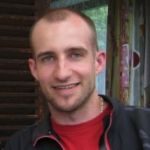
|
After a ‘Magister’ of physics at the University of Vienna in 2008, I started
my studies as a PhD student in physics with the University of Illinois at
Urbana-Champaign, USA. As my thesis work I have mainly been working on the
extraction of charged hadron multiplicities from datasets collected by the
Belle detector at KEK,
Japan, which gave me
experience in writing analysis modules in C++ on Scientific Linux, in
utilizing batch job/LSF queues and c-shell scripts to harvest the Belle
datasets and in using ROOT to analyze and display the extracted data. Since
September 2010 I have also been involved in the ‘Fast Muon Trigger’ upgrade
project at the PHENIX experiment at RHIC/Brookhaven National Laboratory,
USA. My main tasks consist of hardware installation, operations software
development, detector/trigger commissioning and raw data ‘fast production’,
where I obtained basic experience in Perl, PostgreSQL and PHP. As my future
work, I would like to apply computational methods and technologies to tackle
medium to large scale problems of sustainability, disaster prevention or
communication.
|
|
|
|
|
David LOMIDZE |
Institut für Physik, Johannes Gutenberg-Universität,
Mainz - Germany |
|
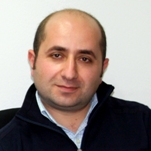
|
Since February 2010 I work on PhD Degree at the
Johannes Gutenberg University of Mainz. Mainly I work on form factor
measurement of Ke3 decay channel using NA62 data of 2007 year run.
I develop Moun Veto Detector (MUV1) for NA62 experiment, working on
prototype tests and test data analysis. Created MYSQL based database for
test data storage and online monitoring application for MUV1 testing
processes. Previously (2004-2009) I
worked at INFN di Napoli in collaboration with the CMS experiment. I was
engaged in different tasks related to the muon trigger detector with
Resistive Plate Chambers. Mainly I contributed in the development of the CMS
RPC online and offline Data Quality Monitoring (DQM), which is dedicated to
the real time studies of the detector and trigger performances with real
event data. In addition worked on the design and test of the power system
for the RPC. Developed online tools for automatic readout of the detector
responses as function of high voltage and front end board threshold for
final quality certification.
|
|
|
|
|
Cinzia LUZZI |
CERN, Geneva - Switzerland |
|
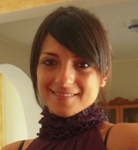
|
I am a PhD student of Computer Science at Ferrara
University. I’m working on the AliEn project, a distributed Grid computing
system developed and used in the context of the ALICE experiment. AliEn, is
a production environment that implements several components of the Grid
paradigm needed to simulate, reconstruct and analyze data in a distributed
way. Currently, I am working on the
integration of Parallel analysis facilities in AliEn, in order to allow
physicists to analyze much larger datasets on a shorter time scale, allowing
file analysis in a parallel way on remote computer clusters. The aim of my
project is to integrate in AliEn a new framework named PoD (Proof on
Demand), that allows users to use this parallel analysis facilities in a
more user-friendly and convenient way, giving a dynamic cluster on request.
The AliEn code is written mostly in Perl, but in the past I also had
experience using C and C++. The project environment is SLC5.
|
|
|
|
|
Bruno MAGALHAES |
EPFL, Lausanne - Switzerland |
|
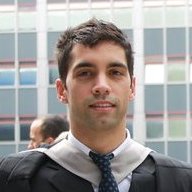
|
I am a software engineer for the Blue Gene (a
16000 computer cluster) at the Blue Brain Project: http://bluebrain.epfl.ch/
I perform daily computation and analysis of parallel algorithms for neural
structures and circuits. Using MPI, MPI/IO, Hdf5 and other parallel tools my
main task is to increase efficiency and stability of the parallel systems. I
assist other doctoral students and scientists in articles publishing, by
providing them with the tools, statistics, and methods that can lead to
better results: an example of such is a parallelization of a 3D volume (a
neural circuit), by slicing all data into subvolumes (using regular and
irregular slices) and providing each CPU with a slice, then gathering all
results. I am highly skilled in C/C++, particularly in MPI and MPI IO. I
have experience in Cuda and multi core programming across networks - my MSc
specialization. I have good knowledge of Java and scripting languages eg
Perl. I use ubuntu as daily OS for my tasks.
|
|
|
|
|
Erekle MAGRADZE |
II Physics Institute of Georg-August, University of
Göttingen - Germany |
|
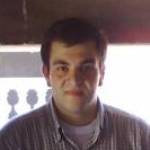
|
Currently I am working on my PhD thesis at II
Physics Institute of Georg August University of Goettingen. My research
interest is scientific computing with respect of data analysis using Fuzzy
Sets Theory and Neural Networks also development of expert system for
efficient GRID infrastructure monitoring. I am working on development and
implementation of GRID sites automatic exclusion/inclusion system with ATLAS
SSB team. For development of the system for ATLAS SSB I am using python2.6
and for expert system (Neural Networks and Fuzzy sets algorithms) mainly I
code in java and using MatLab, also for monitoring of different issues on II
Physics Institute tier2 center I am using bash shell environment for
scripting and PHP as well. I have master’s degree in computer science and 3
years experience as a system and network Administrator with more than 150
computers network (Headquarter and 5 branches) at a private company.
|
|
|
|
|
Manuel MALO DE MOLINA
MARTINEZ |
CERN, Geneva - Switzerland |
|

|
Last year after
finishing my Master Thesis on Computer Engineering at University of Oviedo
(Spain) I came to CERN to work for IT-OIS Group as a Project Associate. I am
part of the Web Services team, we provide the infrastructure and management
tools for the hosting of websites in CERN. Currently my tasks include
developing new tools for our web application to help the users manage their
websites more efficiently, as well as keeping them secure controlling user
access; upgrading our systems to keep up with the newest technologies; and
managing our web hosting servers, both UNIX and Windows machines. For these
I use mostly C#, ASP.NET, scripting languages and several web technologies.
I also feel comfortable working with Java, Python and C++.
|
|
|
|
|
Sebastián MANCILLA |
Federico Santa María Technical University, Valparaíso - Chile |
|
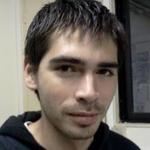
|
I am an undergraduate student of Computer Science at Universidad Técnica
Federico Santa María, in Valparaíso, Chile. In the last year I have been
collaborating with HEP projects of the Physics department, and my current
work is the development of data analysis applications for the CLAS detector
at Jefferson Lab. For one side I am developing an API to implement a full
analysis package with a simple interface to make easy write programs and use
the data files. And the other parallel project is the implementation of the
electro-calorimeter reconstruction using a service oriented approach and a
framework developed by people of JLab. My thesis will be about the C++
implementation of the framework. I am familiar with C, C++, Java and Python,
and I have advanced knowledge of the Linux operating system.
|
|
|
|
|
Christos MARGIOLAS |
CERN, Geneva - Switzerland |
|
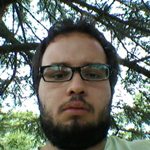
|
I am studying Computer Science at University of
Crete and I am going to graduate after my internship at CERN. I work at PES
group of Information Technology department and I am responsible for the
design and implementation of a distributed modular service for system level
resource monitoring. My interests are Multi-core Architectures and Parallel
Computing, Computational Accelerator Programing (GPUs and CELL BE),
Performance Analysis and Optimizations, System Runtimes and Compilers,
Distributed systems. I am experienced with system level development on
various architectures (x86, ARM, CELL BE, PowerPC). I have used
Assembly(x86, CELL BE), C, C++, Python and Java for various projects needs.
|
|
|
|
|
David MARTIN CLAVO |
CERN, Geneva - Switzerland |
|
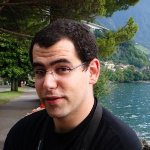
|
I am a software / web
engineer currently working in the CERN Service Management Team as a Fellow
in GS-SMS. My work consists mostly in technical aspects related to the
Service-Now system at CERN. I am the main developer of the CERN Service
Portal (
http://cern.ch/service-portal ). I am also involved in the Drupal
"movement" at CERN (ENTICE), having developed
http://services.web.cern.ch .
Previously, I worked two years in the Indico team, where I integrated Indico
with several collaboration tools (EVO, Vidyo...).
Before that, I worked one year in NTT Data (Japan), contributing to
the ActiveMQ Apache project. Given
all of the above, my technical knowledge covers: HTML/CSS/Javascript,
Python, Java, PHP, relational and object databases. My current interests are
website design / usability, search engines, application performance, and
security. I hope to learn more about some of these topics in the CSC.
|
|
|
|
Manuel MARTIN MARQUEZ |
CERN, Geneva - Switzerland |
|
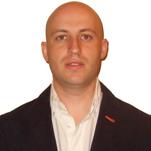
|
I am a Doctoral Student in the Data Management
section of the Beams department at CERN. My Ph.D. research activities are
focused on the study of new parallel biomemetic approaches for non-linear
and non-Gaussian time series forecasting, in order to detect in advance any
malfunctioning of the LHC control system. I am also actively involved in
many other projects related with the main activities of the DM section, some
examples are: CCDB - Data-driven control configuration database system for
the CERN accelerator complex. RBAC - System for managing authorization data
for role-based access to the control equipment, (CERN and Fermilab
collaboration project) and FESA - Framework for the LHC control software
architecture, (CERN and GSI collaboration project). The different roles I
have developed for the projects as mentioned, include: user requirements
analysis and modeling; relational and XML database design, implementation
and support; interface development - web interfaces.
|
|
| |
|
Javier MARTIN MONTULL |
CERN, Geneva - Switzerland |
|
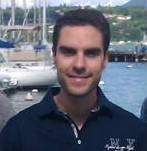
|
I had my first contact with CERN during the last
year of my studies in Computer Science at Jaume I university (Spain) when I
spent a year working as a technical student for the IT-UDS group.
After obtaining my degree I returned with a fellowship position and I
am currently working on the development of the INSPIRE services in
collaboration with the other developers in GS-SIS-OA, IT- UDS-CDS and SLAC.
Bringing INSPIRE from its current "beta" version into a full production
system. The main task is to optimise and complete the toolset for the DB
operators to ingest, classify and curate records. This is a crucial step to
switch off the SPIRES system, where curation still happens, and fully deploy
all operational resources in INSPIRE at the four libraries involved in the
process (CERN, DESY, FNAL, SLAC). In my daily work I use Linux and the
following programming languages: Python, Javascript, MySQL.
|
|
|
|
Luca MASCETTI |
CERN, Geneva - Switzerland |
|
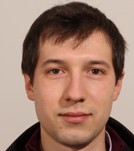
|
I am currently a fellow at CERN in IT-DSS group.
Here I'm working as system administrator on the new multy-petabyte EOS
storage, an high reliability and high availability redundant diskpools used
by ATALS and CMS. Here I developed
and integrated the EOS diskserver setup into the Automatic Installation
Management System in order to minimize the human intervention and I also
specified different failure scenario for the system.
I received my Master degree in Computer System Engineering in
December 2010 at Politecnico di Milano, Italy with a thesis concerning the
Green Traffic engineering where I developed optimization methods for energy
savings in IP traffic engineering.
|
|
| |
|
Andrea MATTERA |
Uppsala University - Sweden |
|
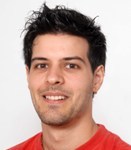
|
Last year (10/2010) I took my MSc in Physics at
the University of Insubria (Italy), with a specialization in Medical Physics
and a thesis dealing with Boron Neutron Capture Therapy applications.
I am now pursuing a PhD in Applied Nuclear Physics at Uppsala
University (Sweden). I will work in the measurement of neutron-induced
fission yields of several actinides and at different neutron energies, to
provide information to be used in future Gen-IV power plants or for the
handling of Spent Nuclear Fuel. I am
currently developing an analysis tool to perform the analysis of the data
that will soon be collected at the IGISOL-JYFLTRAP facility in Jyväskylä
(Finland).
|
|
| |
|
Piotr MORAWSKI |
The Henryk Niewodniczanski Institute of Nuclear Physics
Polish Academy of Science, Krakow - Poland |
|
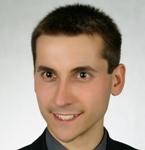
|
I am currently working on my PhD thesis in The
Henryk Niewodniczanski Institute of Nuclear Physics in Cracow. The main goal
of thesis is the measurement of the CKM's gamma angle with tree-like
diagrams. Besides my analysis I am also involve in developing primary vertex
reconstruction package for the LHCb experiment. In my work, I mainly use the
mix of C++ and Python, preferably under Linux environment.
|
|
|
|
Piotr Pawel NIKIEL |
CERN, Geneva - Switzerland |
|

|
I develop control and signal acquisition software
for CERN Accelerators. My work is mostly focused on OASIS, ACCOR and FESA
projects. I'm interested in real time systems, control systems, signal
processing, electronics, but also in many other topics. After hours I enjoy
making music and doing some sports. Previously I worked at CERN in TOTEM and
ATLAS experiments. I come from Krakow, Poland.
|
|
| |
|
Michal NOWOTKA |
CERN, Geneva - Switzerland |
|
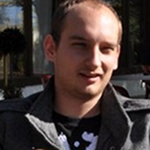
|
I graduated from the Warsaw
University of Technology with a bachelor’s degree in Computer Science, and
am studying towards a master’s degree in Computer Science. Presently I'm
working on web applications for monitoring grid services and providing
global real time visualization of the computing resources held by the LHC
experiments on the WLCG infrastructure. I have prior experience with Linux,
C++, bioinformatics and Artificial Intelligence. I'm also very interested in
web frameworks and open web standards.
|
|
|
|
Elena OLIVIER GARCĺA |
Instituto de Física Corpuscular, Valencia - Spain |
|
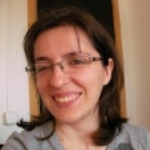
|
I am Elena and I started my PhD in 2007 at IFIC, Valencia. I'm working in
ttbar resonances for Beyond standard model in the ATLAS experiment which is
at CERN. Also, I am working in the ATLAS Spanish Tier-2 as a member of the
User Support IFIC helping with the Grid tools. Moreover, I do shifts in the
Distributed Analysis Team Support and Computing at Point One for ATLAS. I
hope to finish my PhD in the near future.
|
|
| |
|
Pablo PERA MIRA |
CERN, Geneva - Switzerland |
|
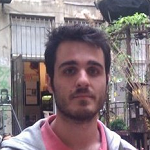
|
I am a software engineer working for the controls
group at CERN. We develop the software that the operators in the Control
Center use to operate the accelerator complex. Before coming to CERN, I
spent some time doing research multi-espectral image analysis in the
Technical University of Valencia, Spain, and also worked for Google, in
Zurich, in the Google Base team. I happened to be there when they launched
Android, and I've been developing (and launching) Android applications since
then. I had already explored a bit the mobile development world via Java ME
on MIDP while I was studying in the KTH, Stockholm, where I stayed for a
year. I am originally from Spain, and looking forward to make the best out
of CSC.
|
|
|
|
Antonio PEREZ PEREZ |
CERN, Geneva - Switzerland |
|
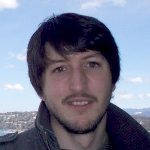
|
I arrived last year as a Technical Student and
was working on the CERN Computer Security Team. After one year and finishing
my studies, I got a Fellowship and I'm currently working in the same team as
software developer, sysadmin and computer security analyst. I'm always eager
to learn new stuff, I dig trying new technologies, love my day-to-day work
and I consider myself a Free Software enthusiast.
My preferred development languages are Python, shell scripting and
C++. I've done also web development (Django mostly and PHP) and I'm quite
experienced on Linux internals and its system architecture.
|
|
| |
|
Francesco PERFETTO |
Università degli Studi di Napoli "Federico II", Napoli - Italy |
|
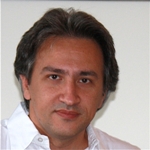
|
After spending two years at University of Roma
"La Sapienza" in Na62 experiment, actually I'm working at University of
Naples "Federico II" in the WArP experiment. The experiment is dedicated to
the search and to the study of galactic Dark Matter in the form of WIMPs
(Weakly Interacting Massive Particles).
In particular my work concerns more aspects: test on photomultiplier
tube (PMT), I am testing the PMT Hamamatsu R11065, at different temperature
(room and cryogenic) to characterize them; study on the optical properties
of the liquid scintillator (Argon) and last but not least physics data
analysis on data that we have got in which I use the ROOT framework. I am
familiar with the following operating systems: Unix, Linux, OSX and with
following programming languages: Fortran, C, C++. I also have basic
knowledge of Perl and bash scripting.
I expect from my participation at the CSC Cern School to improve my
knowledge on ROOT -oriented data analysis- and the optimized use of
computing resources.
|
|
|
|
Piotr PRACZYK |
CERN, Geneva - Switzerland |
|
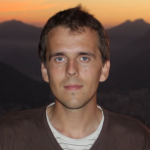
|
I have finished master studies in mathematics
(University of Warsaw) and in Computer Science (joint programme between
University of Warsaw and Vrije Universiteit in Amsterdam).
Since my highschool I worked as a programmer in several IT companies
( lefthand.pl ,
p2ware.com and
hyves.nl ). In 2008 I came as
a summer student and in June 2009 I started as a technical student at CERN.
Since September 2010 I am working as a PhD student.
My project aims at providing infrastructure for managing and
searching for figures from scientific publications. I am working with the
Inspire project.
|
|
|